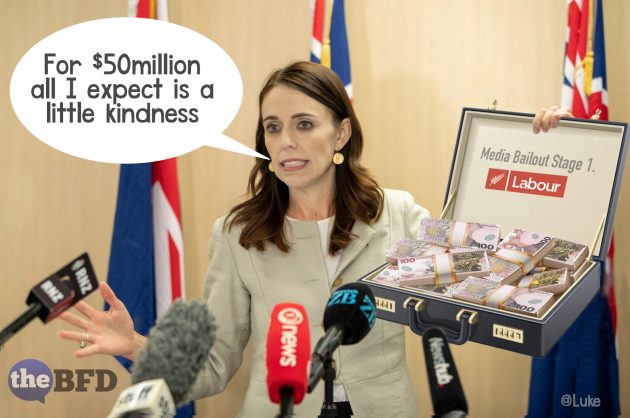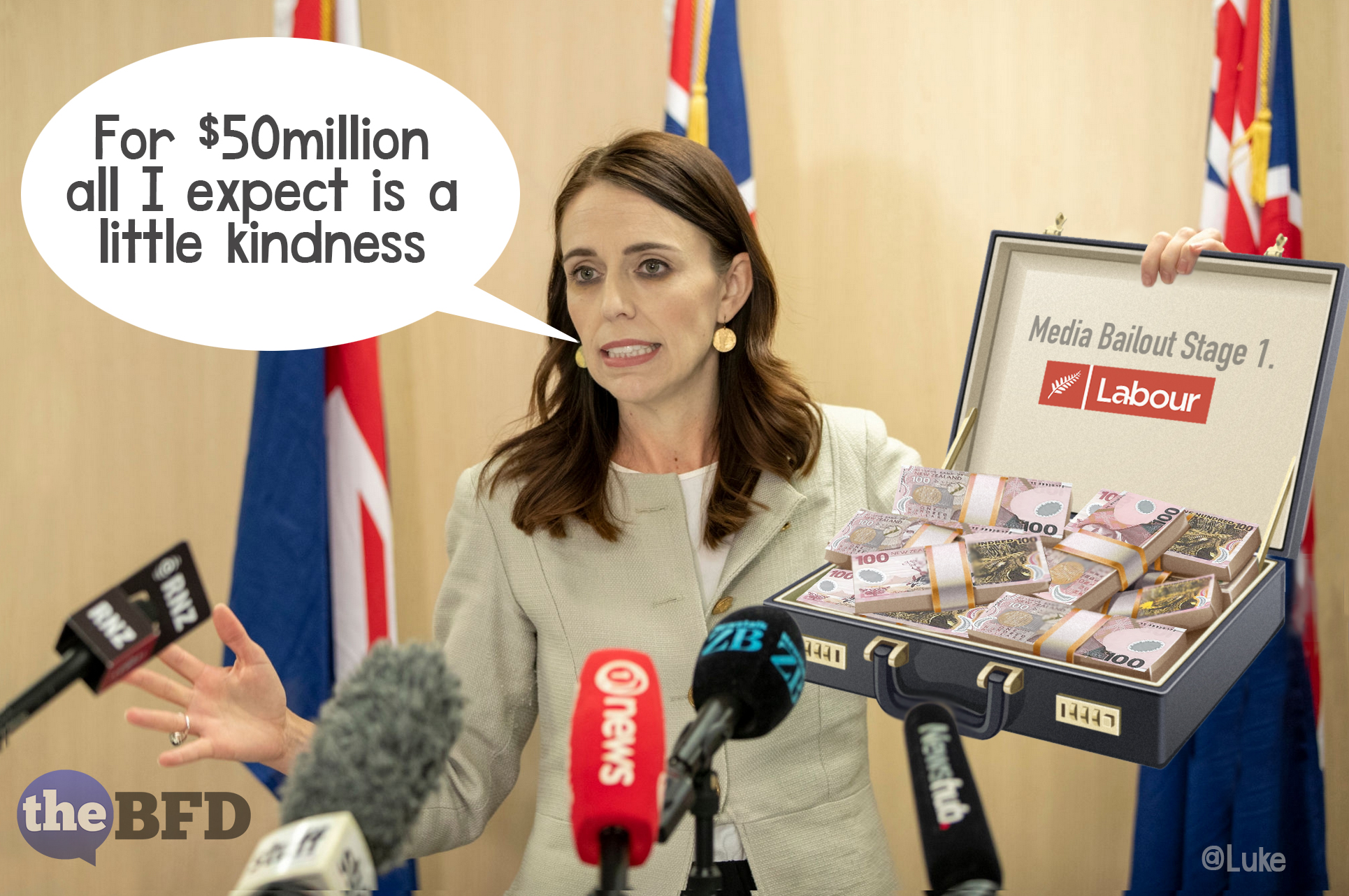Graham Adams
democracyproject.nz
Graham Adams is a journalist, columnist and reviewer who has written for many of the country’s media outlets including Metro, North & South, Noted, The Spinoff and Newsroom
Despite widespread cynicism about the Government’s ability to fulfil its promises — whether it is KiwiBuild, light rail along Dominion Rd, or planting a billion trees — journalist Andrea Vance still found enough fresh outrage last week to launch a blistering attack over a pledge Jacinda Ardern made in 2017 to lead “a more open and democratic society” that would “strengthen transparency around official information”.
In fact, Ardern’s lack of transparency was on show very early in her prime ministership. Shortly after the 2017 election, she refused to release notes from the coalition negotiations between Labour and NZ First — leading one journalist to opine: “A month seems early for a new government to dash hopes of a fresh start yet Prime Minister Jacinda Ardern’s team seems determined to break the speed record when it comes to disregard for public transparency.”
From Vance’s standpoint as a journalist, little seems to have improved since then.
The damning conclusion she arrived at after citing delays in responses to Official Information Act requests and ministers’ refusals to be interviewed was: “At every level, the government manipulates the flow of information.”
It’s not difficult to find other instances of the Government denying access to important information in addition to those Vance mentioned — not least its record of obfuscation over significant details of its Covid-19 management and vaccination programme.
Examples of the kind Vance offered of the government hiding or distorting important information are the most obvious form of political censorship. There is, however, another form of political censorship which can be even more insidious — that is, attempting to impose narratives which suit the government’s purposes and thereby crowd out competing views.
The most effective way to do that is to co-opt journalists and others who are in a position to influence public opinion to help promote a favoured angle. And there have been accusations that Ardern’s government is doing just that in its prescriptions for what qualifies as allowable public discourse through its new $55 million Public Interest Journalism Fund.

The fund’s political intentions are signalled in a statement by the Ministry for Culture and Heritage (which designed the fund with NZ On Air) that its aims are to “support the production of journalistic content that is critical to an open, progressive democracy”.
The word “progressive” usually refers to a left-wing approach to politics that aims to reform society for the better. In this case, exactly which journalism proposals qualify as “better” for society will be decided by the bureaucrats at NZ On Air who will be administering the scheme. (NZ On Air is governed by a board appointed by the Minister of Broadcasting.)
Reading the extensive guidelines, it appears the fund’s architects see journalism principally as an agent for progressive social change. With its encouragement for proposals that “report from perspectives including Pacific, pan-Asian, women, youth, children, persons with disabilities [and] other ethnic communities” — as well as those “made by Maori about Maori perspectives, issues and interests prioritising the needs of Maori” — the fund looks very much like an ideological exercise in identity politics.
It remains an open question, of course, exactly what an emphasis on “diversity of topics, perspectives and analysis” referred to in a Cabinet paper in January under the name of the Minister of Broadcasting, Kris Faafoi, will mean in practice.
For instance, would coverage of conservative Christian views in Pasifika communities get funding if it gave voice to their objections to same-sex marriage, assisted dying and abortion?
Would a project focusing on groups which oppose trans women participating in women’s sports — such as Speak Up for Women — be funded?
Would a proposal to seriously investigate dissenting voices on anthropogenic climate change be approved?
One area, however, where there can be no uncertainty about the fund’s intentions and requirements is the stated need to recognise the Treaty as a “partnership”.
The section describing the fund’s goals recommends “actively promoting the principles of Partnership, Participation and Active Protection under Te Tiriti o Waitangi acknowledging Maori as a Te Tiriti partner“.
And the first of the general eligibility criteria requires all applicants to show a “commitment to Te Tiriti o Waitangi and to Maori as a Te Tiriti partner”.
In short, anyone sceptical of the proposition that the Treaty implies a “partnership” seems very unlikely to get any money.
This presumably means that any journalist who wanted to revisit, say, dissenting views on the Treaty as a partnership — such as those of Ardern’s prime ministerial predecessors David Lange and Geoffrey Palmer — would be out of luck.
In 2000, Lange told the Bruce Jesson Memorial Lecture:
“The Court of Appeal once, absurdly, described [the Treaty] as a partnership between races, but it obviously is not. The signatories are, on one side, a distinctive group of people, and on the other, a government which established itself in New Zealand and whose successors represent all of us, whether we are descendants of the signatories or not.
“The Treaty cannot even resolve the argument among Maori themselves in which one side maintains that you’re a Maori if you identify as such, and the other claims that it’s your links to traditional forms of association which define you as Maori.”
When Palmer was asked in 2017, “Is the word ‘partnership’ helpful when thinking about the Treaty of Waitangi?” he replied:
“No. I think you get better [outcomes] if things are known, if things are open, if things are transparent… [Partnership] is a useful concept, but it’s probably a bit misleading as well, because it’s not an equal partnership. And one of the difficulties about it is that whenever you characterise the Treaty, you run up against a whole range of what I would call difficulties about the meanings of words…
“You get it with the word ’partnership’.… And so the problem that you’ve got here is that it’s a bit too smoky; we’re not quite sure what we’re talking about.”
The designers of the Public Interest Journalism Fund obviously have no such concerns about the concept of “partnership” being “smoky”. Consequently, any project wanting to focus on the views held by Treaty sceptics will presumably not be funded by the cultural commissars holding the purse strings. Yet the question of what role the Treaty should play in our constitutional and political arrangements — a debate that is running red hot at the moment — turns exactly on such contentious points.
Despite the government’s fine words about the Public Interest Journalism Fund supporting “a healthy democracy”, it looks like it is keen to control the debate about the Treaty and to push it in an ideological direction that aligns with that of the Prime Minister and her powerful Maori caucus.
Censorship is not just what we are forbidden to hear, see and read, it is also what we are compelled to hear, see and read. A government — whether progressive, conservative or any other kind — which promotes its own preferred ideologies via a multimillion-dollar media fund is not the saviour of an open democracy but a threat to it.
Media companies and journalists hoping for generous grants are hardly likely to criticise the aims of the fund or its qualifying criteria. But it’s hard to imagine anything more damaging to the trust the public has in media organisations than plausible accusations — or even just suspicions — that they have been bought with $55 million of taxpayers’ money.
This article can be republished under a Creative Commons CC BY-ND 4.0 license. Attributions should include a link to the Democracy Project.

